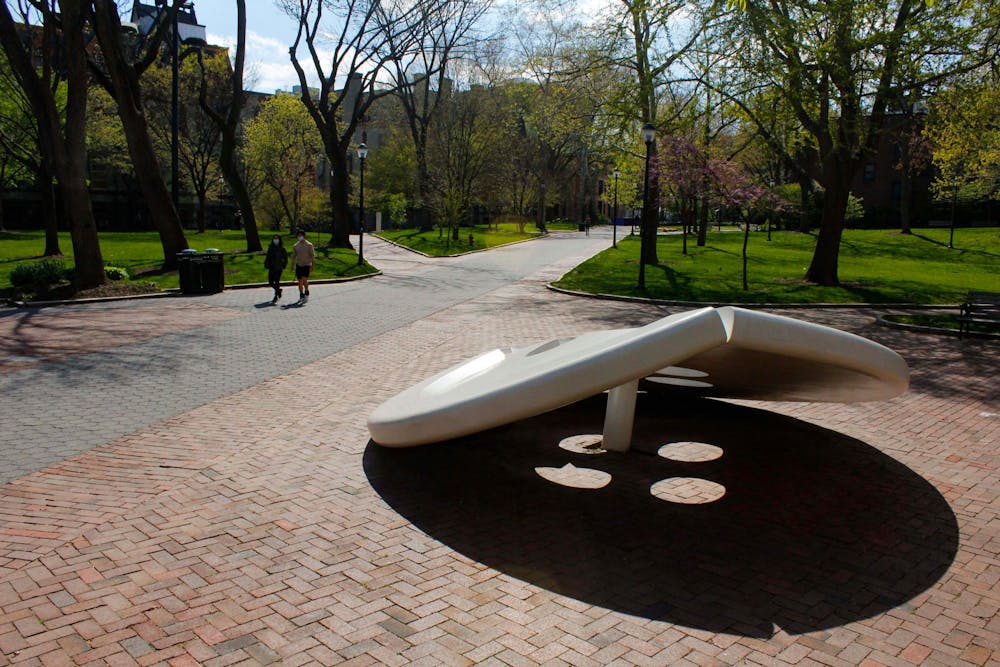
PFP, a four-week summer program for a select group of FGLI students, will run virtually this summer.
Credit: Alexa CotlerFor the first time, Penn’s Pre-Freshman Program will be conducted virtually this summer due to the coronavirus pandemic.
PFP is a four-week summer program from July 25 to August 22 for many incoming first-years in the PennCAP program. PennCAP supports students from primarily low-income and first-generation backgrounds by providing academic, social, and financial support throughout their four years at Penn.
Through PFP, over 100 students who identify as FGLI and come from underrepresented backgrounds have the chance to move in early, take classes for credit, and meet professors and other students before the school year begins. Students are accepted by the Admissions Office, which works with the University's four undergraduate schools.
Rising Engineering junior Arnaud Mutabazi said that as an international student, participating in PFP before his first year at Penn was especially helpful and allowed him to transition smoothly into a new environment.
“Moving from Rwanda to the US was a huge change, and PFP provided me with a good opportunity to adjust, both socially and academically, and form my own community without the kind of stress that usually comes with Penn,” Mutabazi said.
Due to the coronavirus pandemic, however, this year’s selected students will not have the chance to experience PFP on Penn’s campus. Instead, PFP’s typical schedule will be conducted in a condensed, online format for this year’s cohort.
Rising College senior and PFP mentor Kaiyla Banks said PFP programming typically took up approximately eight hours a day when she participated in person before her first year. This summer, the program's classes will take up approximately five hours of the day, Penn First Plus Executive Director Marc Lo and PFP Director Keisha Johnson wrote in an email to The Daily Pennsylvanian.
“We condensed the schedule to redress video call fatigue, and to also make it possible for students to engage live with faculty regardless of time zone,” Lo and Johnson wrote.
University faculty and staff are collaborating with the Center for Teaching and Learning to design courses specifically for online instruction and to increase the number of teaching assistants available for the program.
The program will also take into consideration the financial needs of students, who will now be unable to live on Penn’s campus. Because Penn normally provides free meals for mentors and participants during the program, Lo and Johnson wrote that this year, they plan to send debit cards to both the PFP first-years and their mentors. Penn will also send laboratory kits for students enrolled in a course requiring laboratory equipment.
For many past PFP participants, including Banks, the relationships they built with their peer mentor as a result of in-person communication were the most valuable experiences of the program. The mentors work with first years to help them adjust to Penn, and are PennCAP students who previously participated in PFP.
“That relationship really helped me, and I liked that it wasn’t as formal as it would be with an academic advisor or somebody in a higher position,” Banks said.
As a third-time PFP mentor, Banks said that despite the unfortunate circumstances, she hopes to provide students with the same sense of community that she received years ago.
Rising College sophomore and PFP peer mentor Emmanuel Nkurunziza said he also hopes to make PFP a valuable experience despite being online.
“Obviously, there will be some differences because physical interaction usually builds closer bonds than virtual interaction, but we will make sure to be there for our students every single morning, even if it’s virtual,” Nkurunziza said.
The Daily Pennsylvanian is an independent, student-run newspaper. Please consider making a donation to support the coverage that shapes the University. Your generosity ensures a future of strong journalism at Penn.
Donate







